China says economy improving, capital outflows cooling
by Kevin Yao,
2016-03-20 14:12:50.0
BEIJING — China’s economy is showing signs of improvement while capital outflows from the country are moderating, top Chinese officials said on Sunday, seeking to shore up investor confidence after recent market volatility.
Chinese leaders have repeatedly tried to reassure jittery financial markets and China’s major trading partners that Beijing is able to manage the slowing economy, following a slide in the country’s stock market and depreciation of the yuan.
Recent data, until early March, including fixed-asset investment and employment, showed that the economy is improving, Vice Premier Zhang Gaoli told a high-level economic forum.
"We don’t want to shy away from saying that China’s economy is facing downward pressure, but overall the progress is steady," he said.
China’s manufacturing output in January and February grew at its weakest pace since 2008, according to data released by the National Bureau of Statistics earlier this month.
Central bank governor Zhou Xiaochuan told the same forum that capital outflows out of China have showed a significant easing, citing an abating of concerns about a slowdown in the world’s second-largest economy.
Recent data showed net foreign exchange sales by the central bank and commercial banks dropped in February as the yuan stabilises, partly due to the dollar’s broad retreat as expectations cool on further interest rate rises by the US Federal Reserve.
Commerce Minister Gao Hucheng told the forum China’s foreign trade was likely to show a big rebound in March after falling in the first two months of the year.
Capital flight not worrisome
The central bank’s Zhou said some short-term speculative money may be leaving China, a reversal of the trend a few years ago when China saw big capital inflows, but such money flight was not worrisome.
Analysts say China’s central bank still faces a tough job stemming capital outflows, citing persistent downward pressure on the world’s second-largest economy.
The government will make preemptive policy adjustments to help keep economic growth within a reasonable range, Vice Premier Zhang said, reaffirming the official stance.
The government also needed to prevent risks in the stock, debt, currency and property markets, prevent "cross infection" between the markets and ward off systemic risks in the economy, Mr Zhang said.
China will press ahead with "supply-side reforms" to cut excess industrial overcapacity, focusing on such sectors as coal, steel, aluminium and plate glass, he added.
The government has set a growth target of 6.5% to 7% for 2016. The world’s second-largest economy expanded by 6.9% in 2015, its slowest pace in 25 years.
Beijing has pledged to make monetary policy more flexible this year even as it leans more on increased fiscal spending and tax cuts to support economic growth and cushion the pain from structural reforms.
Finance Minister Lou Jiwei told the forum that he saw little market impact caused by Moody’s recent downgrade of its outlook on China’s government debt.
On March 2, Moody’s Investors Service lowered its outlook on Chinese government debt to "negative" from "stable", citing uncertainty over authorities’ capacity to implement economic reforms, rising government debt and falling reserves.
"I don’t care too much about its ratings," he said, adding that the government will be able to deal with the problems cited by the ratings agency.
Reuters
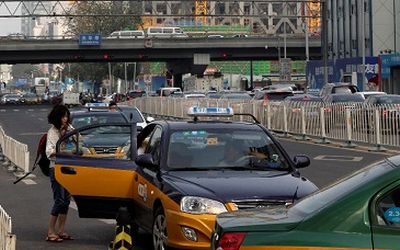
A passenger gets out of a taxi in front of ongoing a building construction is seen from a distance in Beijing, China. Picture: EPA
BEIJING — China’s economy is showing signs of improvement while capital outflows from the country are moderating, top Chinese officials said on Sunday, seeking to shore up investor confidence after recent market volatility.
Chinese leaders have repeatedly tried to reassure jittery financial markets and China’s major trading partners that Beijing is able to manage the slowing economy, following a slide in the country’s stock market and depreciation of the yuan.
Recent data, until early March, including fixed-asset investment and employment, showed that the economy is improving, Vice Premier Zhang Gaoli told a high-level economic forum.
"We don’t want to shy away from saying that China’s economy is facing downward pressure, but overall the progress is steady," he said.
China’s manufacturing output in January and February grew at its weakest pace since 2008, according to data released by the National Bureau of Statistics earlier this month.
Central bank governor Zhou Xiaochuan told the same forum that capital outflows out of China have showed a significant easing, citing an abating of concerns about a slowdown in the world’s second-largest economy.
Recent data showed net foreign exchange sales by the central bank and commercial banks dropped in February as the yuan stabilises, partly due to the dollar’s broad retreat as expectations cool on further interest rate rises by the US Federal Reserve.
Commerce Minister Gao Hucheng told the forum China’s foreign trade was likely to show a big rebound in March after falling in the first two months of the year.
Capital flight not worrisome
The central bank’s Zhou said some short-term speculative money may be leaving China, a reversal of the trend a few years ago when China saw big capital inflows, but such money flight was not worrisome.
Analysts say China’s central bank still faces a tough job stemming capital outflows, citing persistent downward pressure on the world’s second-largest economy.
The government will make preemptive policy adjustments to help keep economic growth within a reasonable range, Vice Premier Zhang said, reaffirming the official stance.
The government also needed to prevent risks in the stock, debt, currency and property markets, prevent "cross infection" between the markets and ward off systemic risks in the economy, Mr Zhang said.
China will press ahead with "supply-side reforms" to cut excess industrial overcapacity, focusing on such sectors as coal, steel, aluminium and plate glass, he added.
The government has set a growth target of 6.5% to 7% for 2016. The world’s second-largest economy expanded by 6.9% in 2015, its slowest pace in 25 years.
Beijing has pledged to make monetary policy more flexible this year even as it leans more on increased fiscal spending and tax cuts to support economic growth and cushion the pain from structural reforms.
Finance Minister Lou Jiwei told the forum that he saw little market impact caused by Moody’s recent downgrade of its outlook on China’s government debt.
On March 2, Moody’s Investors Service lowered its outlook on Chinese government debt to "negative" from "stable", citing uncertainty over authorities’ capacity to implement economic reforms, rising government debt and falling reserves.
"I don’t care too much about its ratings," he said, adding that the government will be able to deal with the problems cited by the ratings agency.
Reuters


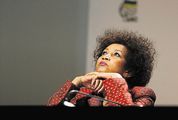


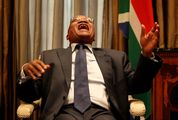


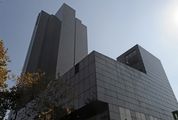
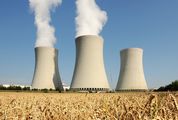
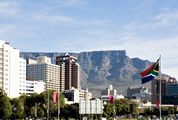










Change: -0.80%
Change: -1.03%
Change: -0.24%
Change: -1.13%
Change: -1.10%
Data supplied by Profile Data
Change: 0.13%
Change: -0.29%
Change: -0.80%
Change: 0.00%
Change: 0.03%
Data supplied by Profile Data
Change: 0.02%
Change: -0.99%
Change: -0.03%
Change: -0.15%
Change: 0.81%
Data supplied by Profile Data
Change: 0.33%
Change: 1.22%
Change: 0.06%
Change: 0.50%
Change: 1.04%
Data supplied by Profile Data